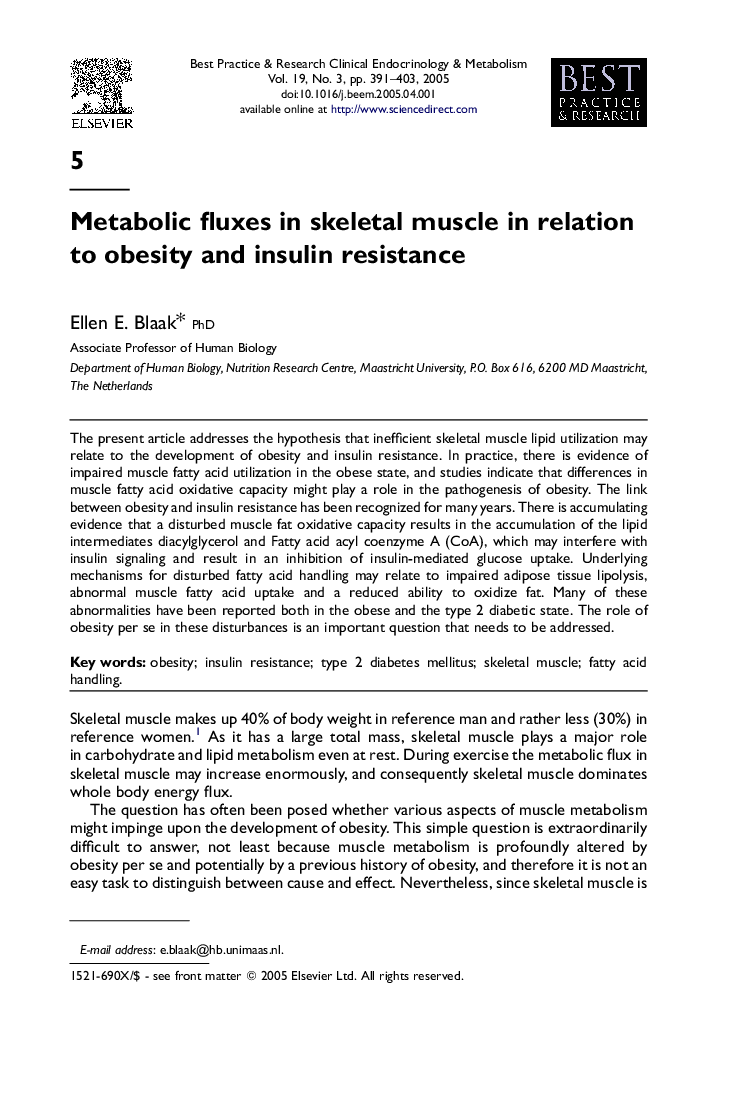| Article ID | Journal | Published Year | Pages | File Type |
|---|---|---|---|---|
| 9110330 | Best Practice & Research Clinical Endocrinology & Metabolism | 2005 | 13 Pages |
Abstract
The present article addresses the hypothesis that inefficient skeletal muscle lipid utilization may relate to the development of obesity and insulin resistance. In practice, there is evidence of impaired muscle fatty acid utilization in the obese state, and studies indicate that differences in muscle fatty acid oxidative capacity might play a role in the pathogenesis of obesity. The link between obesity and insulin resistance has been recognized for many years. There is accumulating evidence that a disturbed muscle fat oxidative capacity results in the accumulation of the lipid intermediates diacylglycerol and Fatty acid acyl coenzyme A (CoA), which may interfere with insulin signaling and result in an inhibition of insulin-mediated glucose uptake. Underlying mechanisms for disturbed fatty acid handling may relate to impaired adipose tissue lipolysis, abnormal muscle fatty acid uptake and a reduced ability to oxidize fat. Many of these abnormalities have been reported both in the obese and the type 2 diabetic state. The role of obesity per se in these disturbances is an important question that needs to be addressed.
Related Topics
Life Sciences
Biochemistry, Genetics and Molecular Biology
Endocrinology
Authors
Ellen E. (Associate Professor of Human Biology),
